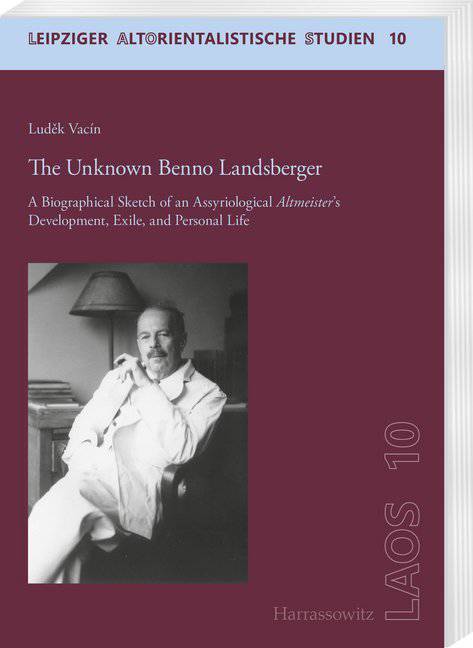
- Afhalen na 1 uur in een winkel met voorraad
- Gratis thuislevering in België vanaf € 30
- Ruim aanbod met 7 miljoen producten
- Afhalen na 1 uur in een winkel met voorraad
- Gratis thuislevering in België vanaf € 30
- Ruim aanbod met 7 miljoen producten
Zoeken
The Unknown Benno Landsberger
A Biographical Sketch of an Assyriological Altmeister's Development, Exile, and Personal Life
Ludek Vacin
€ 88,95
+ 177 punten
Omschrijving
Benno Landsberger (1890-1968) was an Assyriologist whose research and teaching decisively shaped the development of his field in the latter two thirds of the 20th century. The present work constitutes the first book-length study of Landsberger's life and career. Focusing on his formative years, it is sought to answer the question of his motivation for the study of ancient Mesopotamia in the context of the cultural discourses of the day. In doing so, the work uncovers the personal background behind Landsberger's concept of "Eigenbegrifflichkeit" of Babylonian culture, a foundational theoretical framework for further development of Assyriology as a modern scientific discipline. Additionally, the book presents and analyzes new evidence for Landsberger's studies and work in Leipzig, relocation to Ankara, as well as his personal life before and during his Turkish exile. The volume also addresses in detail Landsberger's relationship and enduring interaction with his students from the golden age of the "Leipziger Schule" of Assyriology. Drawing on a wealth of often hardly accessible archival, oral, and epistolary sources, the book offers a well-founded and contextualized account of Landsberger's life and work in his European and Turkish periods. It is a welcome contribution to the historiography of Assyriology, providing much new knowledge as well as many stimuli for further research.
Specificaties
Betrokkenen
- Auteur(s):
- Uitgeverij:
Inhoud
- Aantal bladzijden:
- 132
- Taal:
- Engels
- Reeks:
- Reeksnummer:
- nr. 10
Eigenschappen
- Productcode (EAN):
- 9783447111249
- Verschijningsdatum:
- 19/12/2018
- Uitvoering:
- Paperback
- Formaat:
- Trade paperback (VS)
- Afmetingen:
- 170 mm x 241 mm
- Gewicht:
- 317 g

Alleen bij Standaard Boekhandel
+ 177 punten op je klantenkaart van Standaard Boekhandel
Beoordelingen
We publiceren alleen reviews die voldoen aan de voorwaarden voor reviews. Bekijk onze voorwaarden voor reviews.








